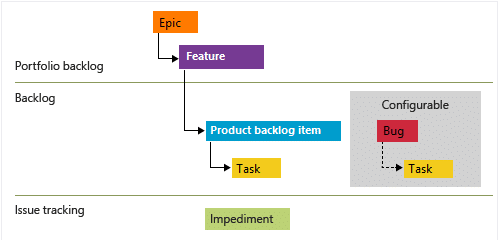How To Capture The Benefits of the Scrum Methodology
The application development process has become a faster in the past few years. Driven by demands for the fastest speed-to-market possible for software deployments in the digitally driven, rapid-moving business landscape of the modern era, teams look to the Scrum methodology to keep up.

What are the benefits of the SCRUM methodology?
Application lifecycle management, as well as development, is a highly complex and demanding process, which could make it difficult for those stakeholders, project managers and developers to achieve the speeds expected among other employees.
However, SCRUM has become a more popular form of agile Web development that enables quick turnarounds on projects while simultaneously working to ensure the most accurate and beneficial outcomes. In many ways, the strategy provides application development teams with opportunities to refine communications protocols, tighten up requirements management and drive the overall proficiency of the end products in practice, helping to improve returns on investment and success rates.
The origins of SCRUM
The SCRUM methodology traces its history back to product development that covered a wide range of items and services in the corporate framework, though many of which were customer-facing. Scrum.org explained that a SCRUM team would consist of product owners who essentially dictate the specifications and requirements of a given product and then pass it to development teams who will have a maximum of 30 days to complete the initial product and present it to other stakeholders.
Notably, the final position that needs to be covered is SCRUM master, who will essentially act as a project manager in connecting the dots between the various team members and departments involved, all the while overseeing the development process in a hands-on fashion, the organization noted.
In these types of strategies, one of the most important aspects to keep in mind is the increased need for streamlined communication and collaboration channels, especially as the whole point of these pursuits is to strengthen the efficiency and rate of successful completion in the development and lifecycle management arenas.
Scrum.org added that simplification is the fundamental difference between this new type of application development strategy and others, specifically in terms of process and procedural management frameworks. In many ways, the most rudimentary overarching management strategies will tend to yield the most streamlined and efficient process among development teams.
Tools to drive SCRUM higher
Modern Requirements4DevOps was created in an effort to help strengthen the efficiency of communication and collaboration in the development team, especially within the requirements management aspects of their responsibilities. Companies that want to truly achieve SCRUM proficiency and enjoy the quicker turnaround times on project pitches and successful completions will need to find ways to improve communication between stakeholders, project managers and the developers themselves.
What’s more, requirements management cannot be a flippant and solely quick process within the lifecycle management arena, but rather has to be highly consistent and completely accurate to avoid project failures. With Modern Requirements4DevOps, communication channels will be far more efficient and effective, especially when individuals in various departments are interacting with one another and development teams are sharing requirements management specifications.
Author: Asif Sharif
Time to Read: 5 minutes
Related Articles
Request a Demo!
- Schedule a demo with one of our trained product experts.
- Receive a personalized demo that mimics your team's process
- Engage our experts on topics such as workflow or best practices.

Reduce UAT Efforts
50% Reduction in UAT efforts

Proven Time Saving
80% time saving on creating Trace Analysis

Streamline Approvals
Significant reduction in approval delays

Increase Performance
50% requirements productivity improvement

Reduce Rework
10-fold reduction in development rework

Simplify Compliance
40% reduction in compliance reporting efforts


